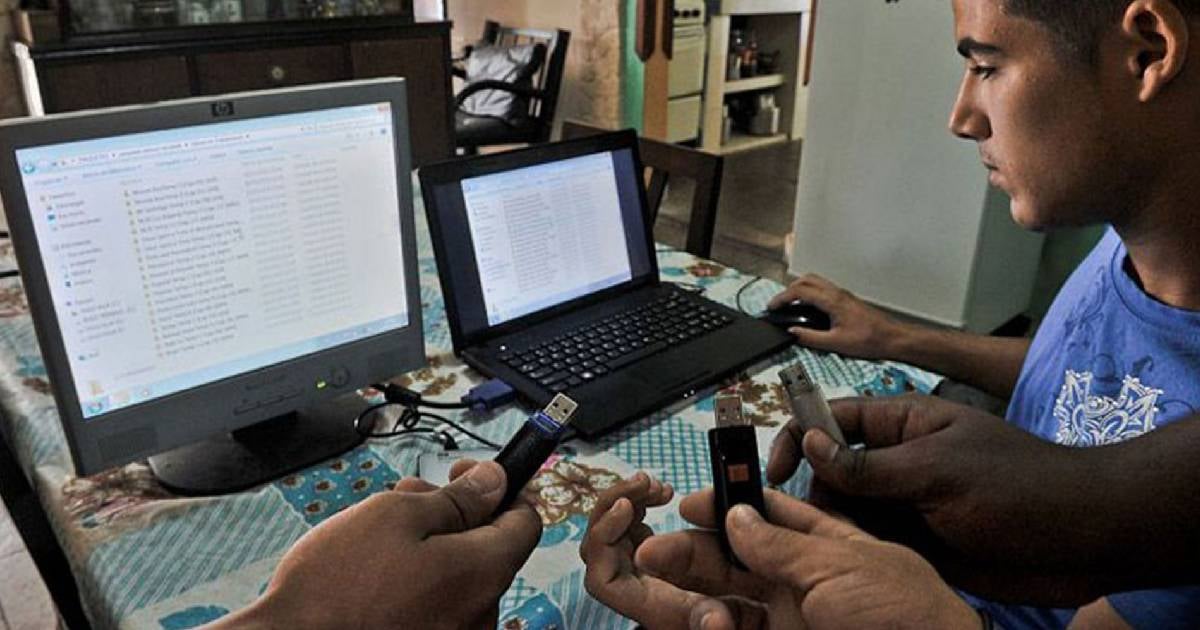The publication of a list containing 125 prohibited economic activities for micro, small, and medium-sized private enterprises (Mipymes), non-agricultural cooperatives (CNA), and self-employed workers (TCP) in the Official Gazette of the Republic of Cuba No. 78 of 2024 has introduced significant changes, including the end of the well-known “weekly package.”
The Weekly Package is a mix of entertainment widely circulated on the island for several years, featuring movies, shows, series, novels, cartoons, and other audiovisual products, distributed on an external hard drive of approximately 1 terabyte.
The fear of Cuban authorities is evident through the enactment of this new measure and Decree 107/2024, which regulates activities that are not permitted for this sector of the country.
In this document, the regime states that “the activities that micro, small and medium-sized private enterprises, non-agricultural cooperatives, and self-employed workers can perform are those considered lawful, except for those regulated in the list of unauthorized activities, which is annexed and forms an integral part of this Decree.”
In section 61, under “Information, communication, and telecommunications,” it establishes that the activity of film exhibition, including movies, documentaries, series, novels, or similar works, as well as their availability to the public through digital media, is prohibited.
For years, Cuban leaders have expressed concern over the content circulating in the so-called “weekly package.”
Last year, the ruler Miguel Díaz-Canel stated that the content of the “weekly package” was a "concern," advocating for the inclusion of nationally produced stories.
“It’s not just about the phones; there could be more concerns, everything that reaches us through the package, through a movie. Are we going to stop watching movies, stop using phones?” he questioned during a meeting with Cuban parliamentarians.
The package also includes applications and advertising content from some self-employed people who pay to promote their businesses. As a commercial initiative, it has served as a development path for new entrepreneurs, who see it as a gateway to the general public.
However, in 2018, the regime introduced censorship in this initiative by banning some television shows produced in Miami, as well as some news segments, including those from Telemundo and Univisión 23. The show TN3, hosted by Cuban presenter Carlos Otero, was also eliminated at that time.
Additionally, it prohibited the distribution of certain scenes from the series El Señor de los Cielos (Telemundo), which linked Cuba to drug trafficking.
FAQs about the Ban on the Weekly Package in Cuba
Here are some frequently asked questions and answers about the recent prohibition of the "weekly package" in Cuba and its implications.
What is the "weekly package" in Cuba?
The "weekly package" is a collection of entertainment content, including movies, shows, series, novels, cartoons, and other audiovisual products, distributed on an external hard drive of approximately 1 terabyte.
Why did the Cuban government ban the "weekly package"?
The Cuban government banned the "weekly package" due to concerns over the content circulating through it and to regulate activities that are not permitted for micro, small, and medium-sized private enterprises, non-agricultural cooperatives, and self-employed workers.
What content was censored by the Cuban government in 2018?
In 2018, the Cuban government censored some television shows produced in Miami, news segments from Telemundo and Univisión 23, and the show TN3 hosted by Carlos Otero. They also prohibited certain scenes from the series El Señor de los Cielos that linked Cuba to drug trafficking.
